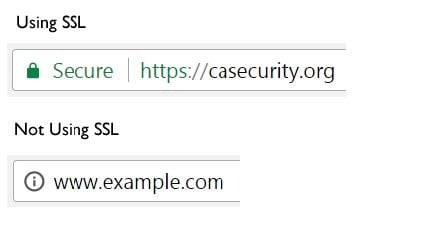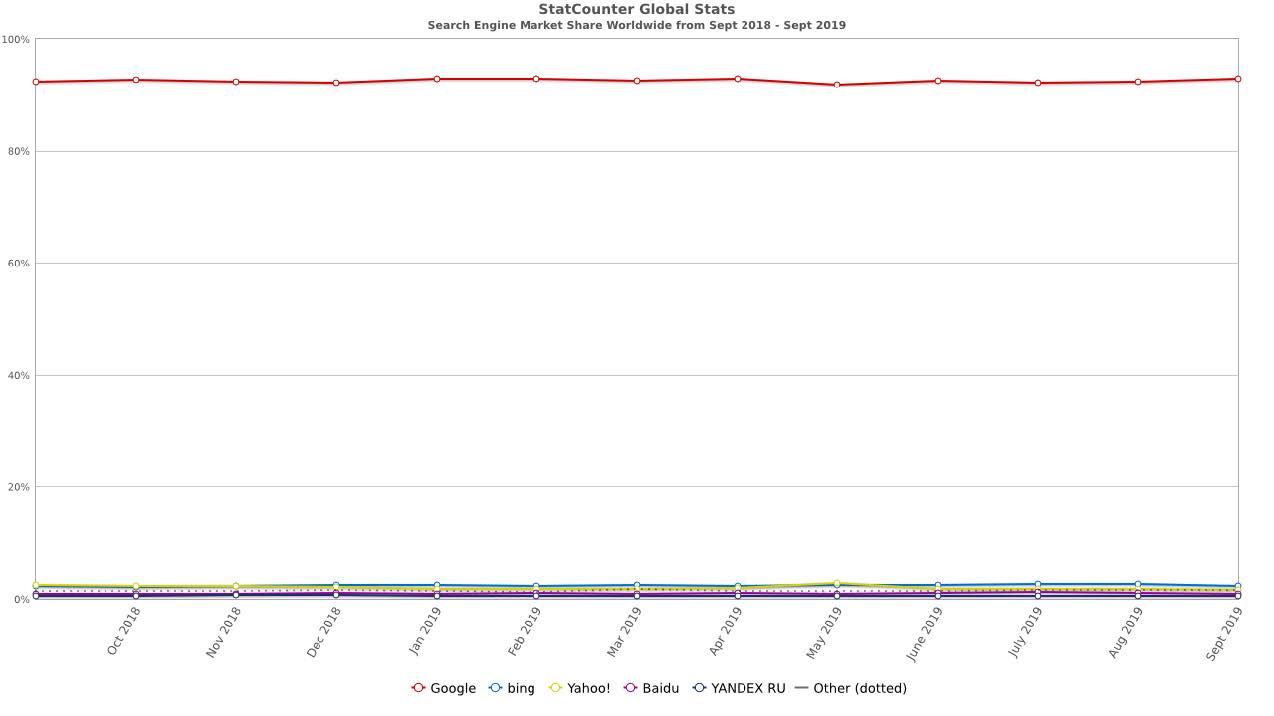Things change. And the technicalities behind online marketing are no exception.
The Internet has provided many powerful tools for businesses to employ. Among those tools are SSL and
According to entrepreneur.com, “SEO serves as the blood and fuel of all online marketing because search engine results are the places where the money lies.”
By developing and maintaining a reliable
What is SSL and Why is it Used?
To put it simply, SSL is the backbone of making the Internet secure, and it is essential in protecting your website.
Standing for Secure Sockets Layer, SSL first came onto the scene in 1995 as a means of encrypting data and establishing security. When data is passed along the Internet from computer to computer, SSL ensures privacy and provides critical security and data integrity from hackers and identity thieves. To boot, it maintains confidentiality. In doing so, it provides authentication and data encryption between applications, machines, and servers between a web server and a browser. This occurs every time you connect to the Internet.
There are no limits when it comes to SSL and what it protects. In fact, all types of data are secured: credit cards, email addresses, file sharing, usernames and passwords, webmail servers, and other sensitive information. Keep in mind, without an SSL certificate, a third party computer could hijack your sensitive information.
How to Tell a Website is Secure with SSL
Luckily, a secure SSL requires little to no effort on the user end of the spectrum. It is a relatively transparent protocol, and you can easily tell if a website is using SSL or not. Pay attention to the green padlock and green address bar showing the URL as HTTPS (the “S” stands for “secure”) and not HTTP:

In this case, because example.com is operating without an SSL certificate, the website is deemed insecure by web browser standards.
Advantages of SSL
Beyond encrypting sensitive private data, a proper SSL certificate can provide authentication. When sending information, you want to have it sent to the correct server and not to an imposter, hacker, or identity thief trying to run off with your sensitive information.
That is why it is important to establish your website with a proper SSL certificate from a trusted SSL provider. A trusted SSL will only assign an SSL certificate to a verified company. To establish a company’s credibility, the provider will have to run several identity checks. Moreover, there are varying types of certificates that require even more validation than meets the eye.
A proper SSL certificate is also a means of establishing trust as most web browsers give visual cues to its users that a website is certified. For instance, you may see a padlock icon or the address bar green. This ensures trust in that the connection is secure.
Finally, in order to accept credit card information through your website, you must personally go through a certain set of audits and comply with Payment Card Industry standards, or PCI Compliance.
Disadvantages of SSL
In the instance of SSL, the advantages far outweigh the disadvantages. Yet it is essential to point out one of the biggest: the cost. When a trusted SSL provider, such as 101domain, runs its audits to validate your identity and sets up a trusted infrastructure, there is a cost to it. There are some free entry-level SSL certificates like Google’s Let’s Encrypt, however, these are not recommended for business websites that accept personally identifiable information.
Additionally, performance is another disadvantage. When encrypted information is sent from computer to computer by the web server, the server requires more resources than it would need if the information was not encrypted. However, this is typically only an issue for particularly popular websites with a large volume of visitors (This can be easily minimized with special hardware, but that inevitably costs more money).
What is SEO and Why Does it Matter?
Search engines may be getting smarter, but with the power of
SEO is equally, if not more, important than having an SSL certificate, particularly if we’re exclusively discussing what will get your site more traffic. Standing for “Search Engine Optimization,”
The process of
Because of the knowledge
As ironic as it sounds,
When your website is correctly optimized with
What is more, all major search engines primarily rank websites based on what the search engine considers most relevant to the users. Major search engines include Google, Bing, and Yahoo. But, in the
But why is that? As Statcounter reports, Google was the search engine of choice for 92% of all searches worldwide between Sept. 2018 – September 2019. See below for a visual representation of the gap between Google and the next 5 largest search engines.

By optimizing your website, search engines will be able to better serve you to audiences who will find your content relevant. In effect, this properly indexes your website and displays it higher in search results.
How do SSL and SEO help a website’s organic ranking?
As previously mentioned, SSL secures information between a user and a website. A well-implemented SEO strategy can boost a website’s ranking in search engine results. When these come together, a website may receive a ranking boost compared to a non-SSL enabled website, Google publicly stated.
In fact, SSL has now been adapted into Google’s search ranking algorithm. As announced on Google’s Webmaster Central Blog, “Over the past few months we’ve been running tests taking into account whether sites use secure, encrypted connections as a signal in our search ranking algorithms. We’ve seen positive results, so we’re starting to use HTTPS as a ranking signal.”
Though this slight ranking boost may be relatively minor, there are several indirect benefits to adapting a secure SSL and
Google’s algorithm has found that “unsecured websites don’t provide good user experience,” as stated by Medium. And by having an unsecured website, “people leaving the website after seeing an unsecured message would show to Google that this website is not worthy of being ranked high for that keyword.”
Needless to say, this has a negative impact on a website’s overall rankings.
But, with a proper SSL certificate (and relevant content), users tend to stay on a website longer, because they feel secure and trusting of the website.
In Conclusion
As we have come to find out, implementing SSL and
When a user’s private data is encrypted and secured and hackers are unable to attack web server traffic, it is easy to understand the vitality of a proper SSL certificate. It leads a user to feel safe and secure, which in turn develops a sense of trust. When a user trusts a website, they stay, signaling to Google a higher trust rating and user experience, thus boosting a website’s overall search engine ranking.
To conclude, SSL and


